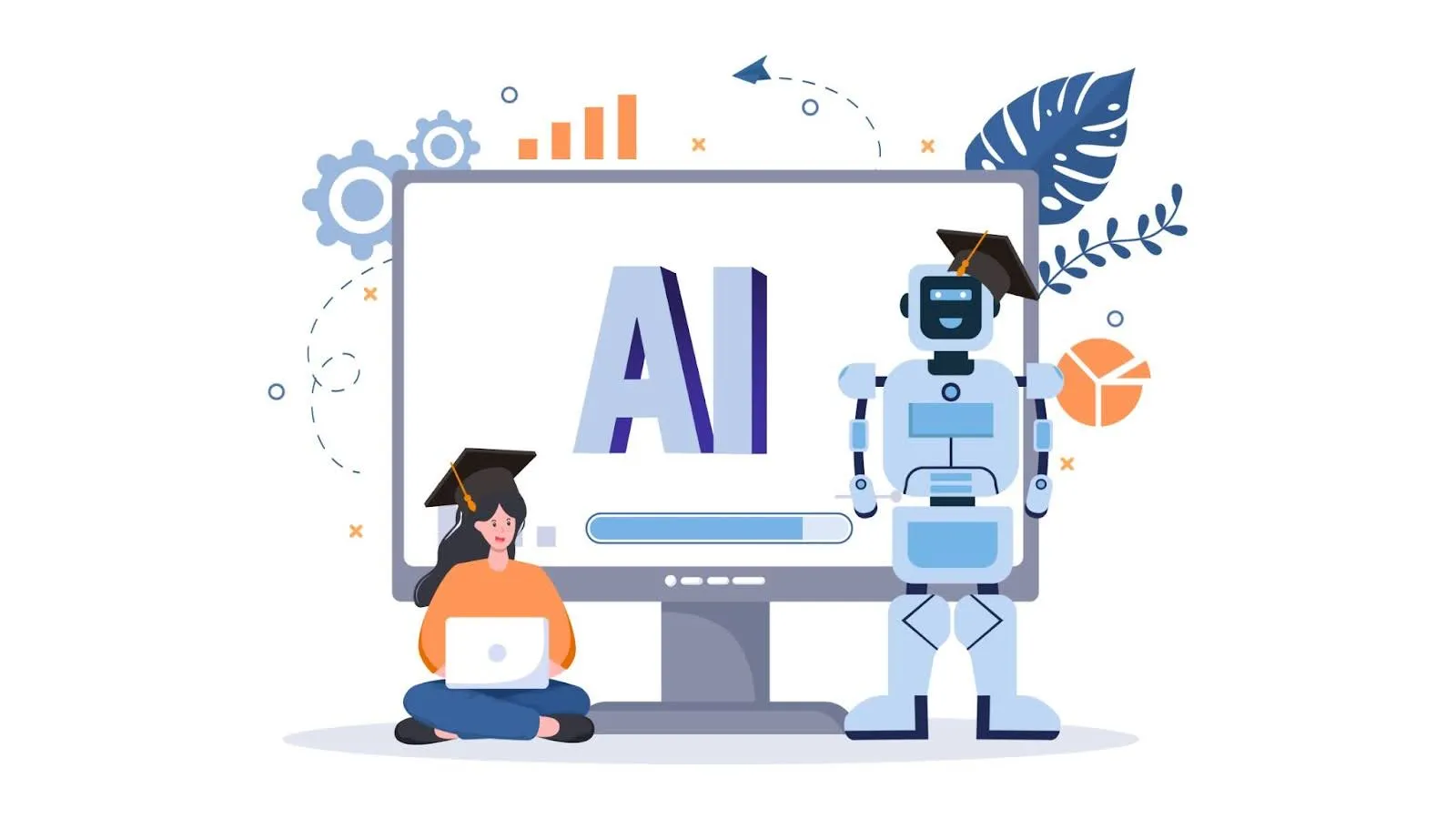
Copilot Won’t Solve UK Teacher Workload Crisis: How Custom AI Can Help

Table of Contents
In classrooms across the UK, teachers face a growing tide of administrative tasks that pull them away from what they do best: teaching. Teachers are burning out under the weight of lesson planning, marking, data entry, and endless paperwork, with research showing they routinely work 50 to 60 hours a week.
For some, technology has been hailed as a way out, but popular AI tools like Microsoft Copilot, designed for office productivity, fall short in the nuanced world of education.
What schools truly need is not generic automation but custom AI solutions built from the ground up for education. Tools that understand curricula, student diversity, and school policies, and that can meaningfully lighten the load.
Copilot: A Generic Tool for a Very Specific Problem
Over the past year, edtech providers and policymakers have rushed to plug AI into classrooms. At the center of much of this hype is Microsoft Copilot, a productivity-focused AI assistant rolled into Office 365. Its promise is to save teachers time on planning, marking, and admin.
But there’s a problem: Copilot is not built for schools. It’s built for business.
Yes, it can help generate emails, summarise documents, or reformat a PowerPoint. But it has no understanding of UK curriculum frameworks, subject-specific pedagogies, or school safeguarding policies. It doesn’t “know” what a Year 8 student should learn in History, or what the difference is between formative and summative assessment. It certainly doesn’t grasp how a SENCO (Special Educational Needs Coordinator) tailors learning for a child with dyslexia or autism.
In short, Copilot is a blunt tool. And the workload crisis in UK schools requires something much sharper and more tailored.
Custom AI as a Solution Built With Teachers
Unlike off-the-shelf solutions like Copilot, custom AI systems can be tailored to understand the unique rhythms and pressures of school life. Imagine an AI edtech tool that integrates with a school’s MIS (Management Information System), reads performance data, and understands the school’s calendar, class structures, and lesson templates.
Let’s say a Year 5 teacher wants to prepare a writing assignment. The AI system can suggest prompts based on recent classwork, adjust complexity for EAL (English as an Additional Language) learners, and automatically generate success criteria aligned with the national curriculum. It can even suggest differentiated tasks based on last term’s assessment data, all without the teacher hunting through files or spreadsheets.
This AI solution isn’t about replacing teachers. Rather, it’s about reclaiming their time for what matters the most: teaching.
A Deeper Look Into What Custom AI Can Do for Teachers
Custom AI teacher tools can tackle specific challenges educators face every day by automating routine tasks and providing smart support. Here’s how it can make a real difference in the classroom:
-
Personalised Lesson Planning
Custom AI can analyse curriculum goals alongside student data to suggest lesson plans tailored to different learning levels and needs. This saves teachers time and ensures lessons are relevant and engaging for every student.
-
Automated Marking and Feedback
By assessing student work with built-in criteria aligned to school standards, AI can provide instant, objective feedback. This helps reduce teacher workload and speeds up the learning cycle for students.
-
Data-Driven Insights
AI tools can track and interpret assessment results, attendance, and behaviour patterns, highlighting students who need extra support. This allows teachers to intervene early and tailor interventions effectively.
-
Streamlined Communication
Custom AI can draft clear, consistent messages for parents or guardians based on real-time student progress, behaviour, and upcoming events. This keeps families informed without adding to teachers’ admin burden.
-
Adaptive Resources and Differentiation
AI can generate or recommend differentiated resources that accommodate diverse learning styles, abilities, and special needs, ensuring every student can access the curriculum at the right level.
Challenges: Privacy, Ethics, and Cost
Custom AI has the potential to transform education, but it’s not without its challenges. For edtech teams and school leaders considering these tools, three key concerns stand out:
-
Data privacy
AI systems need access to sensitive data (from attendance records to SEND reports) to function effectively. Any deployment must comply with GDPR and include strict data protection protocols.
-
Bias and fairness
AI trained on limited or biased datasets can reinforce stereotypes or overlook students with additional needs. Ethical design, diverse training data, and educator involvement are essential.
-
Cost and scalability
Building custom AI isn’t cheap. But neither is high teacher turnover or lost learning. Smart procurement, collaboration across trusts, and open-source models can help manage costs over time.
Why EdTech Professionals Need a Good Tech Partner
The most impactful innovations in AI for education won’t come from Big Tech. They’ll come from edtech professionals who understand that AI needs to be context-aware, and grounded in pedagogy, policy, and the messiness of real classrooms.
But here’s the catch: few educational teams have the in-house technical expertise to build the kind of AI that actually reduces workload. That’s where working with a partner like Magora becomes critical. Magora doesn’t offer one-size-fits-all solutions. We work closely with education providers to build custom AI platforms that align with real teaching needs.
Instead of forcing schools to adapt to generic software, experts can help create tools that adapt to the school. Imagine an AI tool that knows the curriculum, follows school policies, syncs with your data, and is easy for teachers to use without hours of extra training.
That kind of precision takes more than just good ideas. It takes deep collaboration between educators and technical experts who know how to translate school-based needs into reliable digital systems.
Final Thoughts
The UK’s teacher workload crisis isn’t a tech problem, it’s a systems problem. But custom AI, built carefully and used ethically, can be part of the solution. Copilot might help a little around the edges, but if we’re serious about saving teachers' time and sanity, we need tools that speak the language of education, not enterprise.
The future of teaching should not be about battling bureaucracy. It should be about bringing joy, creativity, and connection back into classrooms. AI won’t do that alone, but done right, it can give teachers the one thing they’re always short on: time.
Curious about custom AI for education? Work with Magora to develop smart, teacher-focused solutions that make a difference.





